
Table Of Contents
Who Is at Fault in My Florida Car Accident?
Every single person who gets behind the wheel of a vehicle is responsible for driving safely and obeying traffic laws. No matter how diligent you are, accidents still happen, and this may be the result of another driver’s negligence by not operating their vehicle in a safe manner. If you are injured in an automobile accident, then you may have the right to seek compensation for your injuries. The circumstances of your accident and injuries may determine who is liable for the accident, and how much you may be able to recover with our legal services. Hiring an experienced and dedicated injury lawyer in Florida such as the Distasio Law Firm, will help you win the fight ahead.
The most common way that fault is determined in a car accident is with physical evidence, such as the cars themselves, skid marks, and debris field. Witness testimony plays a role in discovering who is at fault, and dash cam footage is always a great tool for proving who is liable for the damages. Oftentimes police as well as insurance companies will review all these pieces of evidence to determine fault, and the police may issue a citation at the scene if they determine someone violated a traffic law causing the crash.
When you hire an attorney from Distasio Law Firm, we gather all this evidence, statements from witnesses, and police reports if and when they come to the scene and file an accident report. On occasion police do not arrive and it is now on you to take photographs and video to present in your case. Our team will carefully compile all this evidence and build your case while you are medically treating your injuries, and when you have reached your maximum recovery, make a demand on your behalf, and start the settlement process. If then the insurance company refuses to do the right thing, we file a lawsuit, and take your case to court for a jury trial where your peers will make the final determination on your case. Only about 1-2% of all cases ever go to trial, but when they do, you have Scott Distasio, a Florida Bar Board Certified Trial Lawyer, on your side.
What to Do After a Car Accident
Immediately following a car accident there are a few things you must do to ensure you are protecting yourself from what’s to come. Call 911, make the report of the accident, and ask for the police to come to the scene. If you are even slightly injured, ask the dispatcher to send an ambulance to get checked out right away. Go to the hospital and get yourself treated for the injuries as soon as possible. If you are not seriously injured, it is still extremely important that you seek medical attention, as your Florida insurance Personal Injury Protection, aka PIP, requires you to see a doctor for injuries within a very limited timeframe.
When possible, gather all the information from the other driver, such as license plate, insurance information, and driver license information, as well as the names and contact information of anyone else involved in the accident.
Photograph the crash, both vehicles, and surrounding road areas. Do this only if it is safe to do so. Get all angles, all damage, and photographs of any physical injuries that are visible to the eye. This will help in building your case and prevent insurance adjusters from downplaying the accident or your injuries. Gather video clips, if possible, with a walk around of the vehicles as well. Also, when possible, get photos or video of the traffic pattern and roadway where the accident took place. This will help officers, insurance, and your lawyer understand how the accident happened and how negligence played a role in the event.
It is important that you do not share the details of your accident on social media, as it will often be used against you while negotiating your case by the defending insurance company. The details of the incident should only be shared with the police, your attorneys, and with insurance as needed with your attorney from Distasio Law Firm present for that conversation and statement.
Statute of limitations in Florida Car Accident Cases
The “Stature of limitations” is a time limit that the state of Florida has set for you to be able to bring a claim for an injury caused by someone else’s negligence. Here in Florida, for a car accident or personal injury case that did not result in death the limit is 2 years to file your claim. If there was a wrongful death, the statute of limitations is just 2 years to file your claim.
What does this time limit mean for your case? It means the longer you wait, the more risk you take in being able to recover fair value for the claim, and f you wait till the time limit has passed, you are no longer able to file a claim for that negligent act at all.
Contact Our Expert Florida Car Accident Attorneys Right Away
It is very important to seek legal assistance as soon as possible after an accident. If you wait several weeks or even months to file a claim or have not seen a doctor to report any injuries, the insurance company will argue that you do not have any injuries as you did not go to the doctor. They will say any injuries you may have now could have come from any other incident after the accident and not the accident itself.
If you are concerned about the costs of medical treatment, we will help with getting you were seen by the right doctors and getting your PIP coverage activated. Our network of medical professionals and our team’s legal experts will make sure that you get the treatment and recovery you deserve.
Contact Distasio Law Firm today, your consultation is free, and you do not pay unless we win.
Who is at Fault When Hitting an Animal?
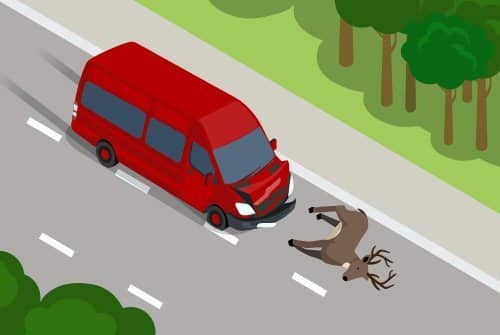
Who is at Fault When Hitting an Animal?
When you’re determining fault after a collision with an animal, the most important issue is what type of animal is involved: wild animals, livestock, or domestic animals. In general, there is no legal fault if you hit a wild animal, but in cases with dogs, horses, and other animals that have owners, the owner may be on the hook for damages.
Who Is At Fault In a Multi-Car Accident?
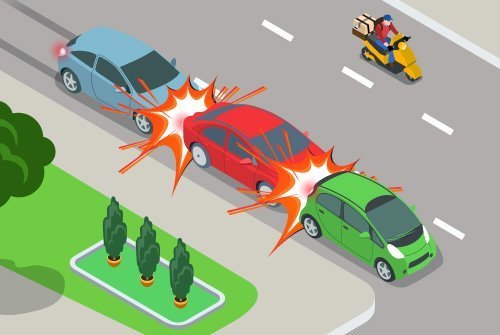
Who Is At Fault In a Multi-Car Accident?
In a multi-car accident, fault must be determined on a case-by-case basis. However, there are some general principles that will help determine liability in these accidents. The individual drivers’ actions and the type of accident that occurred will determine how liability can be assigned. More than one party may share different levels of fault.
Who is at Fault When Hitting a Parked Car?
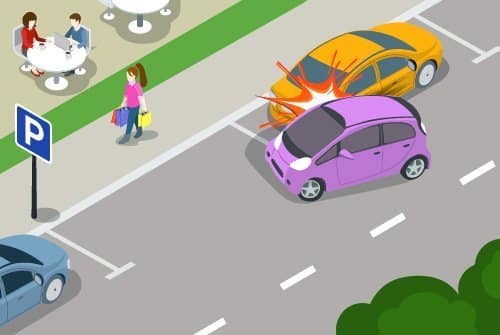
Who is at Fault When Hitting a Parked Car?
It is usually obvious who is at fault when a parked car is hit. The driver of the parked car was not moving at the time of the wreck, and they may not have even been in the car at the time it happened. Therefore, the parked car could not move out of the way to avoid the accident. The driver of the moving car is liable by default in the vast majority of cases.
Who is at Fault in a Car Accident When Backing Up?
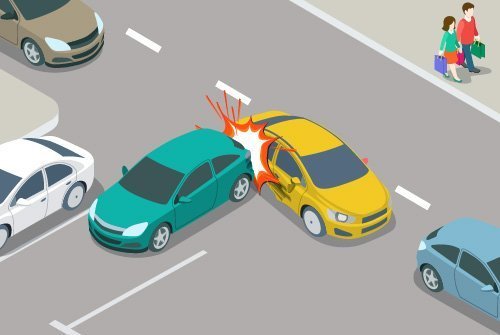
Who is at Fault in a Car Accident When Backing Up?
Determining who is at fault when an accident happens while a car is backing up can be complex. Fault will depend on a variety of factors, including the drivers’ visibility and whether or not they could anticipate that the other vehicle involved may back out. In these crashes, liability may lie with one party, or it may be shared to some extent between the drivers.
Who is at Fault in a T-Bone Car Accident?
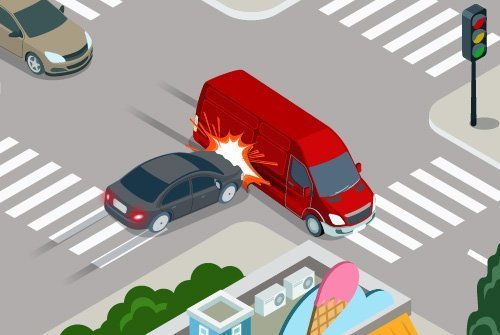
Who is at Fault in a T-Bone Car Accident?
Who is at fault in a t-bone accident will depend on which of the vehicles involved had the legal right of way at the time. The driver who violated another driver’s right of way is liable for damages in an accident claim. They are at fault because they did not have the right to move forward at that time.
Who is at Fault When a Car Hits a Pedestrian?
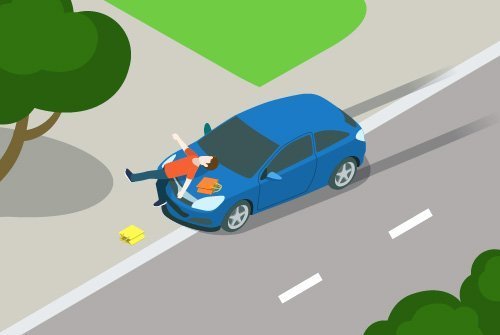
Who is at Fault When a Car Hits a Pedestrian?
Many people believe the driver is always at fault when they hit a pedestrian with their car. The truth is, there are plenty of situations where the pedestrian caused the accident. For example, jaywalking, running out in front of a car, or behaving erratically because they are under the influence. The driver was at fault when the pedestrian was following the laws.
Who is at Fault in a Sideswipe Accident?
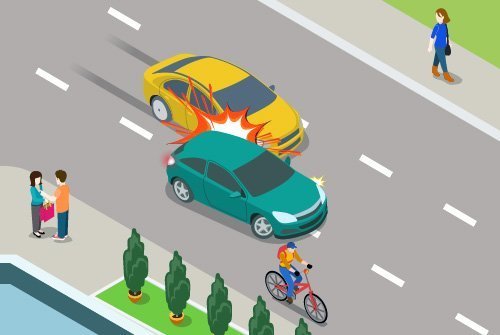
Who is at Fault in a Sideswipe Accident?
When one car sideswipes another one, the accident and the resulting damages are usually the fault of the driver who made an unsafe lane change. The driver who leaves their lane without making sure it is safe to do so violates their duty of care toward the other drivers on the road. When they do this, they become negligent, and they can be held accountable in court.
Who is at Fault When an Open Car Door is Hit?
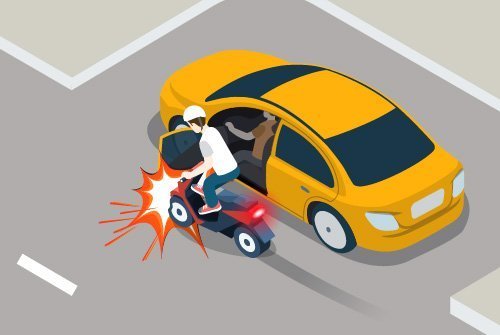
Who is at Fault When an Open Car Door is Hit?
Regardless of the circumstances, in almost all cases the driver who opened their car door is responsible for any accident that takes place as a result. The driver of the car who opened the door had the opportunity to make sure it was safe, but they neglected to do so. Most states have laws that specify that the driver is at fault in dooring accidents.
Who is at Fault in a Head-On Collision?
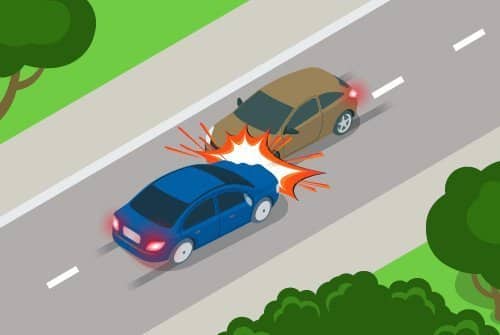
Who is at Fault in a Head-On Collision?
In a head-on collision, the driver who failed to take reasonable care by not paying attention to the road signs or veering into oncoming traffic is generally responsible. If the other driver is in their lane of traffic and following the laws, fault will usually be clear in these cases. Unfortunately, the victims are often no longer alive to dispute fault in these serious accidents.
Who is at Fault in a Rear End Collision?
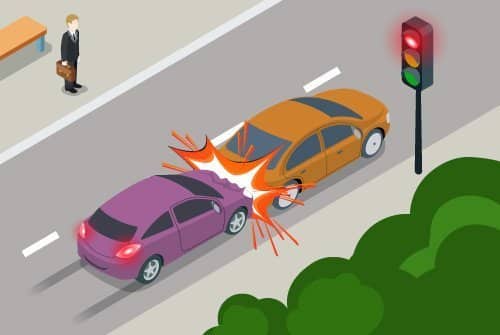
Who is at Fault in a Rear End Collision?
In a rear-end collision, the driver who is determined to be negligent will be held liable. You may assume the driver in the rear is at fault. This may be true in most cases, but the driver who was rear-ended could also be at fault. For instance, if they were negligent because they slammed on their brakes in the middle of fast-moving traffic.

